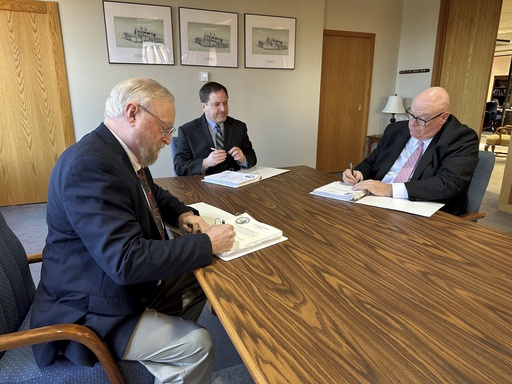JEFFERSON CITY, Mo. — Starting next year, sports enthusiasts in Missouri will have the opportunity to place bets on various sporting events thanks to a narrowly approved ballot initiative. This measure was significantly supported by extensive financial contributions and endorsements from the state’s professional sports franchises. The state election officials confirmed that the sports betting initiative garnered a slim 50.05% of voters’ backing during the recent November election.
While the constitutional amendment is now officially in place, actual betting activities won’t commence right away. Before that can happen, state regulators need to establish the necessary rules and accept applications from sportsbooks. According to Mike Leara, Executive Director of the Missouri Gaming Commission, they are aiming to have sports betting operational by late spring or early summer, which is well ahead of the amendment’s stipulated deadline of December 1, 2025.
Currently, a total of 38 states and Washington, D.C., permit sports betting, a trend that has surged since the U.S. Supreme Court allowed it in 2018. In Missouri, if the margin of victory for a ballot question is less than 0.5% of the total votes cast, a recount can be requested within seven days of certification. However, a representative for Secretary of State Jay Ashcroft indicated that any request for a recount must come from someone associated with the campaigning process. A spokesperson for the opposition, known as Missourians Against the Deceptive Online Gambling Amendment, stated their group does not intend to pursue a recount.
The campaign in favor of this measure raised an unprecedented $43 million, primarily funded by major players DraftKings and FanDuel, who have a significant share of the national sports betting market. Additionally, the state’s six key professional sports teams — including the St. Louis Cardinals, St. Louis Blues, and Kansas City Chiefs, among others — contributed around $2 million to the campaign.
Bill DeWitt III, President of the St. Louis Cardinals, expressed optimism in a statement, suggesting that allowing sports betting aligns the state with the other 38 states that have already adopted it. He believes this will enhance fan engagement while directing tens of millions of dollars back to Missouri to support education and local communities.
Conversely, the opposition, entirely funded by Caesars Entertainment, raised approximately $14 million to counter the measure, which oversees three of Missouri’s 13 casinos. Under the newly adopted framework, Missouri’s casinos and professional sports teams will be able to offer both on-site and mobile sports betting options. The teams will manage on-site wagering and advertising within a 400-yard radius of their venues, while the Missouri Gaming Commission will directly license two mobile sports betting operators.
The state’s tax on sports betting revenues will be set at 10%, notably lower than the national average of 19%, which sportsbooks paid in taxes across various states last year. Furthermore, the initiative mandates that a minimum of $5 million in licensing fees and taxes must be allocated annually to programs addressing problem gambling. The remaining tax revenue is earmarked for educational purposes at the elementary, secondary, and higher education levels.
After several unsuccessful attempts to legalize sports betting in the state Senate, supporters opted to utilize the initiative petition process to bring the matter to the ballot. Despite being allowed in many states, sports betting is still prohibited in major markets like California and Texas. In 2022, California voters rejected two conflicting initiatives aimed at legalizing sports wagering, following nearly $450 million spent by interest groups for and against the proposals.
